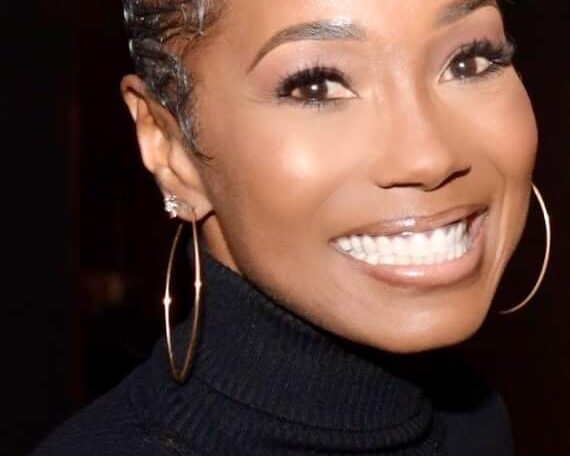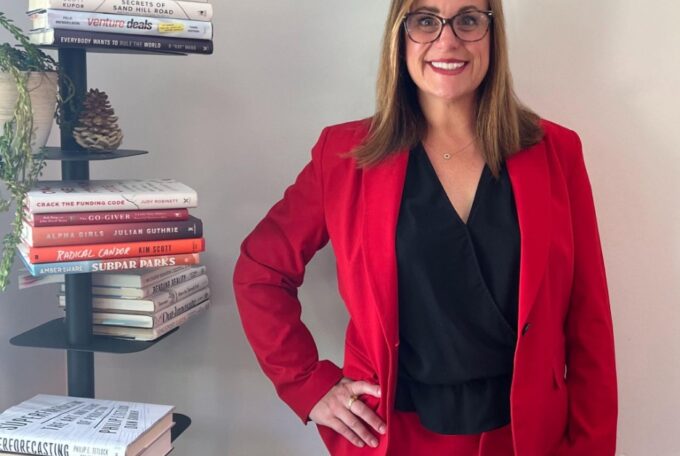Spotlight
Rahama Wright

Rahama is the founder and CEO of Shea Yeleen, a social enterprise that empowers women in West Africa and the United States through the production, sale, and use of high-quality shea butter products. The handcrafted, organic skincare line offers U.S. consumers a clean beauty alternative that is fairly traded, ethically produced, and supports women’s micro enterprise development.
Her entrepreneurial journey began following her service in the Peace Corps, when she started a social impact company at the age of 23. From bootstrapping to landing deals with Whole Foods Markets and MGM Resorts International, Rahama has gained expertise in leading operational strategies, building strategic partnerships and expanding market share to ultimately provide living wages for women producers of shea butter in West Africa.
Rahama has become a leading voice on African women’s economic and business development. A sought-after speaker, she has participated in over 150 global events and panels, including the United Nations Thematic Debate on Entrepreneurship for Development, the U.S. Secretary of State Global Diaspora Forum, the World Bank Africa Region Growth Dialogue, and the Global Entrepreneurship Summit.
In 2014, she was appointed to the Presidential Advisory Council on Doing Business in Africa and is currently serving her third term counseling on strategies to transform and improve commercial engagement between the U.S. and Africa. Rahama has a BA in international relations from the State University of New York at Geneseo and remains an avid traveler, having visited and worked in 36 countries and counting.
What is Shea Yeleen?
Shea Yeleen is a unique social impact beauty brand that creates living wage jobs for women-owned shea butter cooperatives in Ghana. We invest heavily in the supply chain, empowering women in rural West Africa with training and resources to produce, market, and sell their own products. We then connect those products to the U.S. marketplace through our line of moisturizers, cleansers and lip balms made using shea butter, while also educating consumers about fair trade and natural beauty care.
Our skincare line is redefining beauty, while building a more equitable future for women in Ghana — each purchase directly contributes to their financial empowerment. By offering women producers a fair price and delivering high-quality shea butter skincare products to the consumer market, we’re able to promote sustainable economic development and make change in global communities where we do business.
How did you start it?
After my Peace Corps service, I launched Shea Yeleen as a 501(c)3 nonprofit in 2005 before restructuring as a for profit social enterprise in 2014. Initially, we focused on the supply chain with technical assistance and training helping women with accessing capital, securing production equipment, and building processing centers. Now our business model takes it a step further by providing market access through the creation of our plant-based body care line.
Starting out, I was in my early 20s with no business background and zero experience in consumer-packaged goods. It took years of bootstrapping and hearing “no” before I finally secured my first round of venture capital investment and eventually established retail partnerships with Whole Foods Markets, MGM Resorts, and Macy’s.
Why are you focusing on women and diverse founders?
There are an estimated 16 million African women who are part of the global shea butter supply chain. But for decades, they’ve never been visible.
When I was a Peace Corps volunteer, I was working at a community health center in a small village in Mali where women were unable to afford basic medical services or have access to education for their children. Seeing the daily challenges facing women in my community, sparked my interest in exploring income-generating opportunities. Spending time with women’s groups, I learned more about how shea butter is so deeply rooted in the history of so many women across 21 African countries.
These women were supplying raw materials to multi-billion-dollar industries, yet were unable to benefit from the global shea butter supply chain. They deserve a seat at the table. So when I moved back to the U.S., I began to connect the dots so they could take their raw material, turn it into a high-quality product, and bring that product to consumers.
Can you share the importance of social enterprise as a business model, and how people and businesses can help support women and diverse founders?
I often face the assumption that establishing a social enterprise is something you do after you’re already successful — that this model can’t become successful or impactful just starting out. I disagree.
I believe social enterprise is not only the business model of the future, but it’s the business model of the present. Companies have a responsibility to use their power and influence for good, to uplift and think about social change from the outset. It needs to be part of the plan from day one in building a successful, sustainable and profitable business.
And something I’ve learned is that one brand can only do so much. We need to let go of the notion that to be successful, you have to be competitive. Instead of competing to create social impact, we can do more good by working together.
It’s why I started Shea Yeleen, and it’s a no-brainer to partner with businesses that share these values. Last year we received a generous grant from Anastasia Beverly Hills, which is a large beauty brand based in California; it put us in a position to plan for a long-term impact in the aftermath of the pandemic. And here in D.C., we received a $640,000 grant from the economic development office to build out a shared manufacturing facility where we’ll provide technical support and assistance to early-stage beauty brands that have an ethos and vision similar to Shea Yeleen.
How are you “changing the room”?
Women in our shea butter cooperatives are paid five times the local minimum wage. They’re earning a living wage for the very first time, and investing that money into their children’s education, nutrition, and access to better health services.
We focus our whole mission and model on strengthening and creating ethical supply chains that incorporate fair labor practices for African women and give them the ability to overcome systemic poverty. It’s financial empowerment and community development that creates a new wave of entrepreneurs, who take money earned by producing shea and invest in other income-generating activities. It’s a positive ripple effect that results in creating better lives for themselves, their families, and their entire community.





